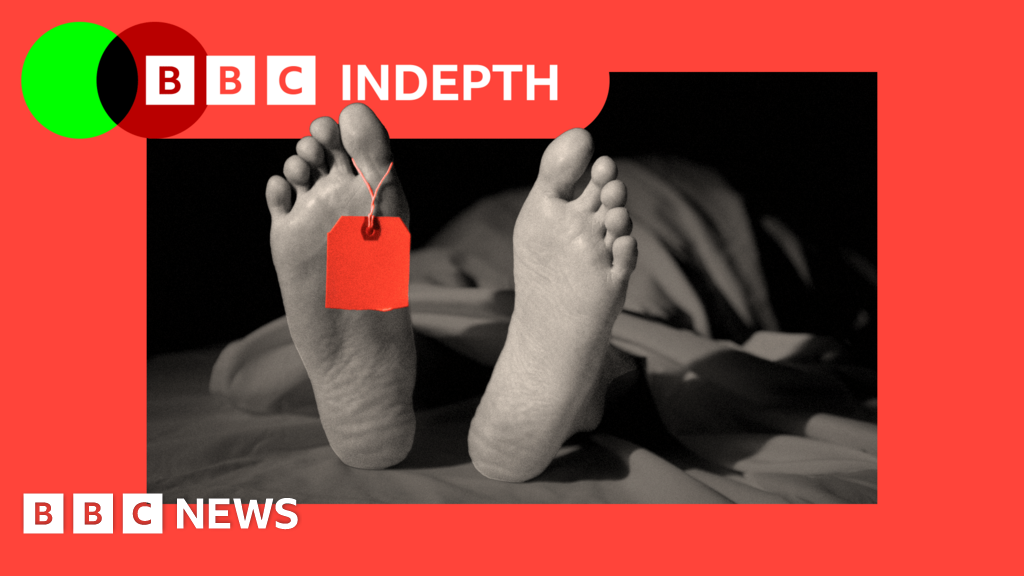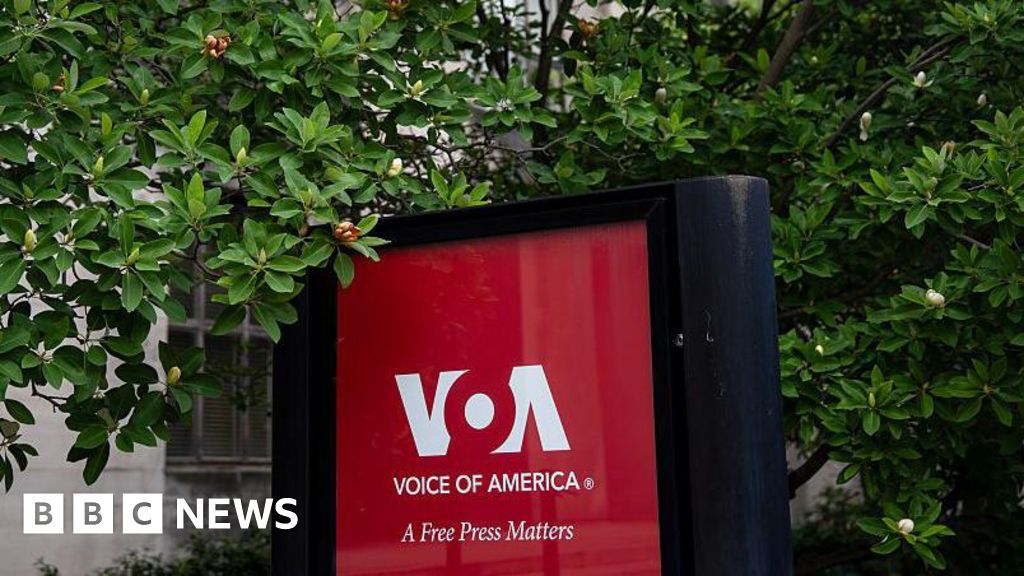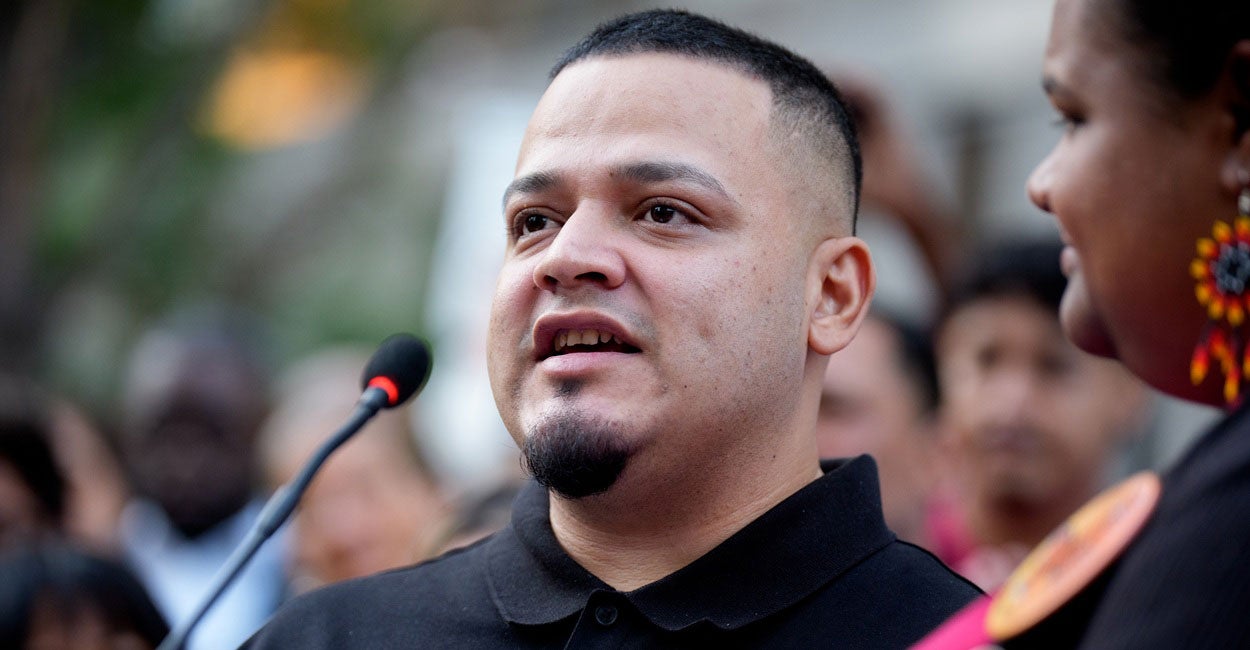The Thought Police are Coming: The Online Harms Bill
John Carpay
Our government, as usual, is up to no good.
In 2021 they tabled a bill for an Online Harms Act, which would have made ‘hate speech’ a crime in Canada. And their definition of hate speech was very broad and amounted to saying anything against the government narrative. To make sure of this, the bill called for creating the office of a Digital Safety Commissioner, essentially George Orwell’s Ministry of Truth from the dystopian novel 1984. But the bill didn’t get far. It passed a first reading before the House in November of 2021, then languished due to pushback from the public, rightly concerned that such a bill would be a violation of our Constitutional right to Freedom of Speech.
On February 21st, just a few weeks ago, Public Safety Minister Dominic LeBlanc announced, both verbally, and in writing, that there would be no Digital Safety Commissioner in Canada, and cited petitions from the public directed at the concerns already mentioned.
But then, just 5 days later, Trudeau’s government resurrected the Online Harms Act, Bill C-63, and it passed a first reading before the House on that same day, February 26th. It will soon receive a second reading before the House. Our government seems very determined to push this bill through.
Was Minister LeBlanc’s statement a case of the left hand not knowing what the right hand was doing? Possibly, but unlikely. Mr. LeBlanc is the Public Safety Minister. It would be his job to know about things like this. And he chose his words carefully when he announced there would be no Digital Safety Commissioner, because Bill C-63 calls for the formation of a Digital Safety Commission, not a Commissioner.
And the current Bill is even more draconian than the last. Not only would hate speech not be limited to written or spoken statements online, but could possibly include statements made orally, outside the internet. Furthermore, Bill C-63 would allow for complaints of ‘hate speech’ to be made anonymously, another violation of our right to face our accuser. Finally, the Bill would make intending to voice ‘hate speech’ a potential crime as well.
Orwellian, indeed. That’s the thought police.
A few days ago I received a very perceptive and extensive article on Bill C-63, written by John Carpay, the president of the Justice Center for Constitutional Freedoms. John has been defending our constitutional rights for over 15 years.
John joins me in the studio today to detail the threats to our constitutional rights and freedoms posed by this draconian Bill, but perhaps more importantly, what we can do about it.
3 Comments
Leave a Comment Cancel Reply
You must be logged in to post a comment.
Will Dove 00:00 Our government as usual, is up to no good. In 2021, they tabled a bill for an Online Harms Act, which would have made hate speech a crime in Canada. And their definition of hate speech was very broad, and amounted to saying anything against the government narrative. To make sure of this, the bill called for creating the office of a Digital Safety Commissioner, essentially George Orwell's Ministry of Truth from the dystopian novel 1984. But the bill didn't get far. It passed the first reading before the house in November of 2021. Then languished due to pushback on the public, rightly concerned that such a bill would be a violation of our Constitutional right to freedom of speech. Will Dove 00:52 On February 21st, just a few weeks ago, Public Safety Minister Dominic LeBlanc announced both verbally and in writing, that there would be no Digital Safety Commissioner in Canada and cited petitions from the public directed at the concerns already mentioned. But then, just five days later, Trudeau's government resurrected the Online Harms Act, Bill C-63. And it passed a first reading before the House on that same day, February 26th. It will soon receive a second reading before the House. Our government seems very determined to push this bill through. Will Dove 01:35 Was Minister LeBlanc statement a case of the left hand not knowing what the right hand was doing? Possibly, but unlikely. Mr. LeBlanc is the Public Safety Minister. It would be his job to know about things like this. And he chose his words carefully when he announced there would be no Digital Safety Commissioner, because Bill C-63 calls for the formation of a Digital Safety Commission, not a Commissioner. And the current bill is even more draconian than the last. Not only would hate speech, not be limited to written or spoken statements online, but could possibly include statements made orally, outside the internet. Furthermore, Bill C-63 would allow for complaints of hate speech to be made anonymously. Another violation of our right to face our accuser. Finally, the Bill would make intending to voice hate speech, a potential crime as well. Orwellian indeed, that's the Thought Police. Will Dove 02:45 A few days ago, I received a very perceptive and extensive article on Bill C-63, written by John Carpay, the President of the Justice Center for Constitutional Freedoms. John has been defending our constitutional rights for over 15 years. He joins me in the studio today to detail the threats to our constitutional rights and freedoms posed by this draconian Bill. But perhaps more importantly, what we can do about it. Will Dove 03:22 Alright, so thanks for coming in John today, because, you know, you sent an email out just a week ago, on Bill C-63, the Online Harms Act. And this is got to be one of the most frightening pieces of legislation our country has ever seen. I'm gonna let you address what's in it. John Carpay 03:40 Yeah, it's the worst assault on free speech in modern Canadian history. A few provisions because, you know, we could have a three hour interview about it if we were gonna go, you know, deep on it. But a few concerns in no particular order of importance, is going to give power to the Canadian Human Rights Commission to prosecute Canadians for non-criminal speech, that the bureaucrats, many of whom are woke progressive, what they think is hateful, they can find you guilty. The penalties can be an order to pay up to $50,000 to the federal government, plus an additional $20,000 paid to the victim of your hate speech. Complaints can be anonymous. So you could have like, somebody in Vancouver could file a complaint against somebody in Halifax over having made disparaging remarks about a mosque in Toronto, even if the members of that Toronto mosque are not offended by it. The guy in Vancouver can complain about the speech of the woman in Nova Scotia talking about something in Toronto. It can be anonymous which undermines it traditional rights that we all have to know who our accuser is, and to face our accuser and to question our accuser, or to have our lawyer ask questions of our accuser. And we've got the Online Harms Bill and other harm is that it gives the federal cabinet powers to create new regulations that will not be subject to parliamentary scrutiny at all. Alright, so the cabinet meets in secret without public input, and they can just issue here's our regulations, those will be enforced by an a Digital Safety Commission. Safety is a scary word, because in the French Revolution, it was the Committee of Public Safety that chopped off the heads of thousands of people. Public Safety. Will Dove 03:40 Yes. John Carpay 03:40 Next, we've got a provision that you can be preemptively punished for something you might do. This is really Orwellian. Will Dove 06:01 The Thought Police. John Carpay 06:02 The Online Harms Act will make it possible for somebody to bring you before a Provincial Court to say I fear that, you know, Will Dove or, you know, Mark Smith or whoever, I fear that somebody is going to commit a speech crime. They're going to advocate for genocide or hate speech, anti semitism, I fear that they're going to break the criminal code with what they say. And if the judge believes or accepts that the fear is is has a reasonable basis, the judge can order that person who's not committed any crime, ankle bracelet under house arrest, obey a curfew, refrain from communicating the certain people, refrain from going to certain places, turn in your legally acquired legally owned firearms, all these conditions placed on a person because of something that they might say. It is so outrageous, and it is just repudiates centuries of common law protections for every citizen. Last but not least, the penalty for advocating for genocide. Currently, the maximum penalty is five years, they want to increase that, the Online Harms Act would increase that to life imprisonment, which is the same penalties what you get for manslaughter. Contrast that life imprisonment for advocating for genocide, whereas sexually assaulting a minor maximum penalty, 14 years. So really, you've got Justice Minister Virani, and Prime Minister Trudeau and the Cabinet believe that advocating for genocide is more serious than sexually assaulting a child. If you look at life imprisonment versus 14 years. Will Dove 07:54 And nobody's arguing that advocating for genocide is bad. But when you say advocating, they haven't actually done anything. They haven't killed anyone. John Carpay 08:02 It's speech. Will Dove 08:03 Maybe they've said something that would be offensive to a lot of people. But that's not, unless they pass this Bill. That's not a crime in our country. John Carpay 08:14 Well, no, it's already a crime. So advocating for genocide is already a crime. It's separate from the Section 319, willful promotion of hatred against an identifiable group. And that is a group that you could identify on the basis of race, ethnicity, skin color, religion, gender, sexual orientation, gender identity, gender expression, vaccination status is not on the list in case you're wondering. So it is okay. It is legal in Canada to willfully promote hate against people not taking certain injections. I digress. So that willful promotion of hatred is Criminal Code offense already, even if it's not combined with any action, but just the speech itself. Advocating for genocide is already a criminal code offense, maximum penalty, five years, they want to increase that to life imprisonment. Will Dove 09:03 So, February 21st, in the House of Parliament, and in writing, the public safety Minister Dominic LeBlanc, announces that Bill C-63 is dead. Now, C-63 was originally introduced back in 2021. It went through a single reading in November, and then just languished. Five days later, February 26th, and remember when Dominic LeBlanc made this announcement, he said there will be no Digital Safety Commissioner in Canada. We have heard from the public that they're concerned that this would be a violation of their freedom of speech. Five days later, the Bill is back, pushed through a first reading February 26th, which incidentally was the same day the government announced it. That people didn't even really have a chance to even know this Bill was there before it went through the first reading. There's obviously some very dirty dealing going on here. John Carpay 09:57 Well, you know, positive aspect, because they've been talking about this for years, and a seeking of this long to do it. It's kind of good, because it suggests that they are somewhat listening. And they're somewhat concerned about public opinion. They are very committed to doing this. They were, they've been talking about online harms for a long time. And I actually believe that if there is a strong public outcry, it might not result in the complete withdrawal of the Bill, but we could see some of the worst provisions removed, which is a partial victory. And then, of course, you know, hopefully, a different government will repeal it entirely in future. But we could end up with something less bad than what was introduced into the House of Commons on February 26th. Will Dove 10:50 Yeah, and I hope so because I've got a list of questions for you about this, John. But I want to start with this one. It is called the Online Harms Act. Okay. Not long ago, very recently, in France, they passed a law that makes it illegal to criticize vaccines. And that law goes so far, that it doesn't even have to be online. It could be somebody overhearing, you're talking to someone else on the bus, it could be an overheard phone conversation. Now, this is specifically the Online Harms Act. So does this mean that it has to be something that was done in print online? John Carpay 11:22 No, because the Canadian, if this Online Harms Act passes in its current form, the Canadian Human Rights Commission is going to get back a power that was taken away from it 10 years ago by the Harper government is going to get back the power to prosecute, not criminally, but still prosecute citizens over what the commission deems to be hateful. And that could be online, offline. That could be me doing open mic at a comedy club, not that I do that, weird example, but you know, it could be it could be a comedian, talking to a group of people. So that applies to all speech of all Canadians that is in public, the Online Harms Act would not if I, if personally sends an email to person B and says, you know, death to the people group X or whatever, that's not caught by a private communications. They're not caught by it. But that's still a pretty broad restriction, though, that anything you say in public, right? On a website, at a rally, at a speech, in a newsletter that you sent out to your supporters, donors. Will Dove 12:46 Alright, so now second question, related to the first one, this has to do with hate speech. Do they actually have a definition of what hate speech is? Or is it just whatever they say it is? John Carpay 12:58 Well, the post about how they're going to bring the law into line with the Supreme Court of Canada ruling in a case about 10 years ago called Saskatchewan Human Rights Tribunal versus what caught and I laugh because the Supreme Court devoted more than 4000 words, trying to come up with a definition of what is unacceptable hate speech. And even the federal government's website, they say, this is not an exact quote, but it's close to it. Hate speech under human rights legislation is speech that promotes detestation or vilification, but for greater clarity, hate speech is not to ridicule, belittle, or promote disdain or dislike. So, there's your clarity for you. You can humiliate and ridicule somebody and you can offend them and you can hurt their feelings and that's not hate speech, but somehow do not cross over into detestation and vilification. So you can promote dislike and disdain, but not detestation. Will Dove 14:09 And I'm familiar with the Bill Whatcott case. And what that was, I mean, there's quite a few buildings, but yes, it was at that particular one. Yeah. Was they went to a gay pride parade, whatever. And they were handing out what looks like packages of condoms. What natural fact were basically biblical tracks. John Carpay 14:28 Yeah, they were literature. John Carpay 14:30 That's a different, that's a criminal prosecution against Bill Whatcott. He was acquitted at trial, the Ontario Court of Appeal ordered a new trial. The Supreme Court of Canada, Whatcott decision from 10 years ago was also about Bill Whatcott and it was about him handing out flyers. And there was a human rights complaint filed against him in Saskatchewan for violating the Saskatchewan human rights legislation. And so in that context, the Supreme Court of Canada said hatred, you can promote disdain and dislike, but not detestation. Will Dove 14:30 Right. Will Dove 15:04 Okay, so what we've determined with these three questions, is that first, it's not just limited to online. John Carpay 15:12 No, it's not. Will Dove 15:13 Second, hate speech is pretty much whatever the court says it is. John Carpay 15:18 Well, and perhaps even worse, it's whatever the bureaucrats that are working for the Canadian Human Rights Commission. And again, a lot of these people are, they're woke, progressive people. And they're, you know, at this period in history, they would be going after conservative speech, libertarian speech, social conservative speech. What people don't realize is that, once you give government that power to determine on your behalf, what is true or false, what is harmful, what is not harmful, what is hateful, what is not hateful. Once you give up that power to government, there's a lot of progressives and woke people that are cheering this on. They're not thinking about how, you know, maybe 10 years from now, there'll be a different government or 25 years, at some point in the future. There'll be a different government with a different ideology is going to go after all the woke people and prosecute them for their speech. They're not thinking they're not thinking ahead. Will Dove 16:17 And I agree that they're not thinking ahead, John, but I don't think that's, all that realistic scenario, because any government that respected people's rights to that degree, would abolish a law like that. That it would be understood you have a right to freedom of speech. And it doesn't matter if we don't like what you're saying, you have a right to say that thing anyway. Here's my real concern, going beyond the horrendous list of concerns that are already there. I want to put together a couple of things here from our own government. When the Bill was introduced in 2021. Environmentalist Steven Guilbeault, Trudeau's pet green attack dog. John Carpay 16:53 Was it probably Pablo Rodriguez? Will Dove 16:55 No, this was Guilbeault who said this, he wanted that Bill to cover criticisms of the government. Now, hang on, we're gonna add one more thing to that. Just a couple of weeks ago, NDP MP Randall Garrison stands up in the House of Commons, and claims that parents don't have rights. So we start putting those kind of things together. And it looks to me like this C-63, could be, you know, basically a tool to shut down any dissent of the government. John Carpay 17:30 Well, and this is going to have a negative impact on advocates for parental rights. Because somebody could say, for example, make the claim that it's impossible for a boy to become a girl or a woman, no matter what kinds of drugs, surgeries, hormones, you can't do it. It's impossible. Okay, what I just said there, which is something a lot of people are saying that could be designated as hate speech directed against transgender individuals, could be. You're putting yourself at the mercy of unelected, unaccountable bureaucrats who can find you guilty. And you can be ordered to pay up to $70,000 plus whatever legal expenses that you might incur. After all that said and done, you could appeal the Human Rights Tribunal decision to a real court. But then again, you know, do you have the quarter million in the bank? I mean, the Justice Center is going to step up to the plate, and we will do our best to represent as many people as possible. But, you know, nine lawyers for a country of 40 million people, you just gonna have a lot of complaints filed, especially now that you can do it anonymously. Will Dove 18:48 Yes, yes. You know, you don't actually have to be. John Carpay 18:50 You don't have to be the one to say, hey, you know, I'm the one, you know, I accept responsibility for filing this complaint against so and so for, you know, whatever Islamophobic or homophobic or anti semitic or whatever speech, you don't have to man up and accept responsibility for being the one to file a complaint. Will Dove 19:09 Because basically, what it does is it carries intranet mentality over into the public on the internet. And it was it's been commented on many times, that people will say all sorts of horrific things, they would never actually say to someone else's face, they're anonymous! They're behind their computer screen, nobody actually knows who they are. So now they can do that to anybody in society by making an anonymous complaint against them for what they termed as offensive. And I think that's the next thing we have to get into, is this hate speech,and it's right in there, right in the wording of the Act could be anything that a particular person finds offensive. John Carpay 19:44 Well, nothing I mean, nothing stops you from filing a complaint. Now, I think a lot of the you know, these bureaucrats working for the Digital Safety Commission and the Canadian Human Rights Commission. They're going to exercise some discretion, and there'll be a lot of complaints will be dismissed out of hand, they will go anywhere. But still, you're going to have huge numbers where it is going to go to the next step, and you're gonna get a letter in the mail, or maybe a letter sent to you by email from the Human Rights Commission saying complaint has been filed against you, we would like you to respond. And that you're, you know, the prosecution has begun and the honor is now on you to to defend yourself. Will Dove 20:27 Right. Which brings me to a theory. I think that there's a range of reasons why they would be doing this. But I think one of the main ones is the failure of C-11, and C-18, to silence independent media, like myself, because I go online all the time, and say things that would be offensive to the woke, offensive to certain groups. It's always factual. It's always things I can prove. But it can be offensive to them anyway. And I think that this Bill is in part, an attempt to silence people like myself, who not only are public dissenting to the narrative to the government, but are doing it in such a way that we have a substantial audience out there listening to us. John Carpay 21:07 Yeah. So the Online Harms Act would empower the federal government to pass regulations to regulate, which can be a nice word for censor social service, sorry, social media services. A social media service is defined as a platform that facilitates interprovincial, or international communications where people are talking to each other on a platform. So technically, as of right now, it looks likely that independent media like the Rebel TrueNorth, Counter Signal, Lifesite News, Western Standard, the Epoch Times, it looks like it probably doesn't apply to those independent media. However, the federal cabinet also has the power to designate who is or who is not a social media service. So the federal government could expand that definition, again, without going through Parliament, but just by way of regulation passed by cabinet. So this could lead to censorship of independent media, it could, unfortunately. Will Dove 22:28 Because it doesn't say social media platform, it says services, right. So if one of these media or someone else, on behalf of them as part of our newsletter for Strong and Free Canada, or I'm presenting a story on my news, which a news report that might be counter to the narrative, I could be perceived as providing a service, representing them, you know, passing on their information. John Carpay 22:54 Well, especially if they're, depending on the nature of your platform. If your platform had a lot of interaction with people talking to each other, definitely, that would fall under the definition of a social media service. Conversely, if it was purely a newsletter that you sent out, but you weren't facilitating a platform for people to talk to each other. Right? So if it's just a newsletter, that you send out, the Act wouldn't apply. However, change tends to be incremental, right? If we let the Online Harms Act, so let's say for argument's sake, that the current version poses no threat to independent media. The fact is, once this is in place, you create a brand new situation where now it becomes so much easier to start to censor the independent media. And I do think that the federal government sees independent media as a threat, because they're interfering with this fake unanimity that, you know, everybody, believes this, and this. These are totalitarian's thing, they don't like a free society, where people have differences of opinion, and people debate that, they don't like that. They want everybody united. So we're all in this together. And we all believe the same thing. And they don't want that dissent. It's like the colleges of physicians and surgeons that are prosecuting medical doctors for exercising professional judgments on how to treat individual patients. Will Dove 24:30 Yes, and that's historical. You're absolutely correct. One of the first things a tyrant always does is grab control of the media. John Carpay 24:36 Yeah. Will Dove 24:37 Now, this time around, it's not working so well, because we have the internet and it's kind of the Wild West and they can't control everything. But I don't want to go too far, you know, along that road. I think we've addressed it. I want to go back to this Thought Police idea of, I mean, that just boggles the mind that a person could be arrested and subject to penalties because someone thought they were going to say something offensive. Are there any provisions in this Act to lay out parameters for that? John Carpay 25:10 Well, the parameter right now is you would not be arrested. But you would be required to appear in court to explain yourself to the judge, and the judge would listen to you, and they would listen to the complainant. And then the judge would issue a ruling that, you know, no, there's not a well-founded fear so we're not going to place any restrictions on you, or yes, there is a well-founded fear. Now, I would say, even if 100% of the judges and 100% of the cases dismissed these complaints, and each and every time the judge says, no, there is not a well-founded fear that this person is going to commit a speech crime. Even if that was the outcome is still has a huge chilling effect by virtue of the fact that you can be hauled before a court and asked to explain to a judge, that you're not going to commit a speech crime. It's that process in and of itself, that has a chilling effect, even if every judge in every case, does not use the power to, you know, place you under house arrest. Will Dove 26:10 Now, I want to ask for clarification there because you said, you will be called before a judge to answer, explain yourself. And the accuser would have to explain themselves except the accuser doesn't because they can make this a complaint anonymously. John Carpay 26:24 No, sorry. That's two different things. For filing a complaint against you with the Canadian Human Rights Commission to file a complaint there that can be done anonymously. I believe that, try to use the court procedure to have an ankle bracelet and curfew imposed on you. The complainant would have to identify him or herself for that. But it's still, in a free and democratic society under the rule of law, we don't punish people for what they might do. That's the bottom line. Nor do we, because people say, well, it's not really a punishment. Well, okay. Well, yes, it is. If a judge places an order on you, and places you under house arrest, and orders you to abstain from drugs and alcohol, and orders you to produce bodily fluids, urine or blood to prove that you're not taking drugs and alcohol, and orders you to give up legally owned, legally acquired firearms, all of these conditions are a form of punishment. And if you disagree with that, and you say to the judge, no, I'm not complying with your conditions, you can then be sentenced to up to two years in prison. Will Dove 27:43 Because you failed to go to court and answer the accusations against you. John Carpay 27:47 Or if you disagree with the conditions, and presumably there would be remedies as well, if you kind of say, you know, screw this, I'm not participating in the process and don't show up for court. Well, that would be a criminal, if you've been subpoenaed to attend court, and you willfully refuse to do so, that is also a criminal code offense. Will Dove 28:08 Okay, so we've talked about the things that set off my alarm bells with this. But you've had been a constitutional lawyer for a very long time, and you've run the JCCF for over 10 years. You had the Canadian Taxpayers Federation, before that, you're very accustomed to keeping an eye on the government and seeing things like this, these sorts of, you know, just Bills in general. What are the biggest concerns that you have with this Bill? Should it pass? John Carpay 28:37 Well, the thousands of complaints will be filed against people and even if the Human Rights Commission follows up on a 10th of those, a 10th of the complaints filed, there's going to be dozens, hundreds, possibly thousands of complaints, where people are going to get the letter from the Human Rights Commission saying complaints been filed against you. We're conducting an investigation, we would like your response, you know, and if you don't respond, you get into big trouble because, so it's a lose-lose. You respond and this is taking away from your limited time and mental energy, possibly your money if you retain a lawyer. So either you respond, which is gonna suck up your time, but if you don't respond, it's even worse because then the complainant kind of has, it's the only party putting forward their viewpoint and if it's not rebutted and not refuted, it's more likely that they're going to find guilt against you. So that's the biggest concern but also the creation of the Digital Safety Commission. Again, it was the Committee of Public Safety in the French Revolution that chopped off the heads of thousands of people. So now we have a Digital Safety Commission that will enforce the regulations passed by the federal cabinet. This will apply to the those who host, the operators of the social media service. So they're going to be living in fear of the Online Safety Commission. So it's very clever because the government is getting operators of the social media services to do its dirty work. Because if you're running a social media service, you don't want, you know, $100,000 fine, or a million dollar fine, or whatever slapped against you, for how you run your social media service. So you live in fear of that. So, you're going to, even though you might not agree with the government, you might not agree with the act, you might not agree with Human Rights Commission, you might disagree with all of it. But if you're running a social media service, you're gonna make darn sure, you're going to start censoring all kinds of comments, just to protect yourself from a fine. Will Dove 31:06 Right. John Carpay 31:06 So that's how the government is going to enlist private citizens to enforce censorship rules. Very much in the same way that you had all these lockdown restrictions and vaccine passports. The government effectively enlisted millions of Canadians who are running a restaurant, were working at a restaurant as a waiter or hostess, you know, the ticket checker at a movie theater, et cetera, et cetera, there's millions of Canadians are enlisted to become the government's agent to enforce the vaccine passports. And this is going to be similar with the operators of social media services, they're going to do the government's dirty work. And since there lots of speech, just to protect themselves from getting into trouble with the Digital Safety Commission. Will Dove 31:57 Right. Now, I need some clarification on something you were talking about just a couple minutes ago, the fact that when somebody files a complaint against you, you're going to receive a letter from the Canadian Human Rights Commission. And this is before it ends up in the courts. Because here's what I'm thinking, if it was a case where there's a complaint filed against you, and now you have to go to court. And a lot of these complaints are, of course, very frivolous. It won't be very long before the courts would just say, don't bother us with this. This is pointless. You're taking up our time. But because this is happening before that point, where it's just. John Carpay 32:36 Well, courts tend to be very deferential. You see the Jordan Peterson, right? So the College of Psychologists of Ontario censors Jordan Peterson's speech and tells him he was out of line. He must, in order to keep his license as a psychologist, he needs to undergo social media training. The most famous Canadian in the world. I think the college is just jealous because nobody's looking at their website. In any event, Jordan Peterson took this to court, and he lost and the Court sided with the college. So I don't know what the success rate will be in terms of appealing. But it's gonna start out in kangaroo court, because the Canadian Human Rights Tribunal is not bound by the rules of evidence. It's not bound by the rules that other courts strive to adhere to, that provides some protection for individual rights and freedoms. Right, so it's going to be in a kangaroo court, before the Human Rights Tribunal. Previously, when Section 13 was enforced, right, we had this but we've seen this movie before, this movie will be worse. Previously, they had close to a 100% conviction rate. So I mean, once the commission was after you, and it got to a hearing, the Commission was winning close to 100% of the time. Will Dove 34:08 Right. Now, if this thing gets passed, then my viewers no means you know me, I'm not going to shut up if it might be pointed at somebody like myself, I'm just going to keep saying whatever I want to say. And if they want to come after me, let them do it. But there's going to be people watching this interview, who will be concerned about this, that if they say the wrong thing, they're going to end up having to deal with the Human Rights Commission potentially going to court. So let's fast forward and let's play devil's advocate for a minute and say, okay, this thing actually passes. John Carpay 34:42 In its current form. Will Dove 34:43 In its current form, it doesn't get revised, it passes in its current form. What would be the advice that you would give to everyday people to avoid running into any trouble with this while still maximizing their freedom of speech as far as they can? John Carpay 34:59 You know, it's a fair question but like I don't even want to go there. I want to encourage people to contact their own Member of Parliament, whether liberal NDP, Conservative, Green Block, whatever party, contact your Member of Parliament and say that, ask them to vote against the Online Harms Act. If you want the resources as to why it's not good legislation, the Justice Center, website, www.jccf.ca, you can see we've outlined the problems with the Online Harms Act. I think that citizen activism in the next few weeks is going to make a difference. I'm going to be at Ottawa in April, we've already got over 26,000 signatures on our petition. We're going to, it's an online petition, it's at our website, www.jccf.ca. We're going to print those out into hard copies, and we're gonna deliver, wherever we're up to them 30, 40, 50,000 signatures, deliver them either to the Prime Minister's office or the Justice Minister, or we'll figure out the details later on. So people should sign the petition, and people should contact their own Member of Parliament, to see to it that it doesn't get passed at all, or at least, that they're going to lose their nerve and get rid of some of the worst aspects. Will Dove 36:23 Right. And I hope that you'd be successful in that because you've said you had over 20,000 signatures already. And when Dominic LeBlanc announced back in the 21st, that they were killing the original Bill, that was based on a petition that had less than 10,000 signatures. So hopefully, you're gonna be successful with that. John Carpay 36:41 There's a lot of people that just see the folly of it. I mean, there are supporters there as well. But if it passes in its current form, the supporter, people that supported it are going to rue the day when the same legislation gets turned against them. Will Dove 37:00 Yes. Because of course, it can go both ways. John Carpay 37:02 Absolutely. Will Dove 37:03 They, for example, you can go there and complain that somebody like myself said, there's only two genders. But I can equally turn around and say, your claim that there's more than two genders is offensive to me. John Carpay 37:17 Exactly. Right. So today, you could get a ruling from the Canadian Human Rights Tribunal that it's hate speech to assert that there's only two genders or that women are entitled to their safe female only spaces like change rooms and washrooms, biological males should not enter. That it's impossible to transition to the other sex, that it's a futile effort. That is harmful for kids to go onto puberty blockers. Those types of statements. They could be hate speech today. But if you give the government this power, we could be in a situation 10 years from now, or 20 years from now, where the government says, oh, you know what, if you encourage kids to take puberty blockers, we're going to come and punish you for that. If you say that there's a whole bunch of genders, we're going to punish you for that. If you're going to advocate for biological males being able to enter into women's sporting competitions, we're going to punish you for that speech. It's only a matter of time before it turns around. And sadly, people don't think about that, they're very short sighted. Will Dove 38:20 Yes. And you're absolutely right. There's been a lot of that that has happened in our country in recent years of people who are sort of this fringe minority, that are kind of getting their way, getting rights taken away from other people. And what they do not think about, do not understand is that once they're done taking away our rights, they're coming for theirs. John Carpay 38:37 It's a loss for everybody. I mean, so the primary, if the Online Harms Act passes in its current form, you know, somewhere for approximately 99% of the people that are gonna get in trouble will be people that are saying, you know, conservative things, libertarian things, religious things, social conservative things, those will be the, you know, or even like, feminists who disagree with transgender ideology or gay people that disagree with transgender ideology, those will be the primary targets at this time. But once you give up that right, that, you know, the gun is the gun. If the government has a gun to shoot these people over here, he can also shoot people over there. Will Dove 39:23 Yes. All right. Thank you, John. John Carpay 39:25 Thank you, Will.














Another money grab by the federal government. Their pockets should be running over by now. Dirty dealing indeed!
Dear Will Dove,
We can’t wait 10,15, 20 years. There’s children to defend .We have to act now. In our current state of semi-Communism, we won’t have another chance.
Hopefully, like what happened 2 -1/2 – 3 years ago, Judges will get so fed up, he/she will TOSS THE LOT OF THEM OUT!!
I think so. More important things to do like catch, charge and convict child molesters and the like.
Thank-you and God Bless you . <3 <3 <3 Rolonne Marie Ross
The Justin Trudeau Liberals are applying the World Economic Forum , Davos Agenda
Which is Hitler Dictator Regime ” Resurrection”